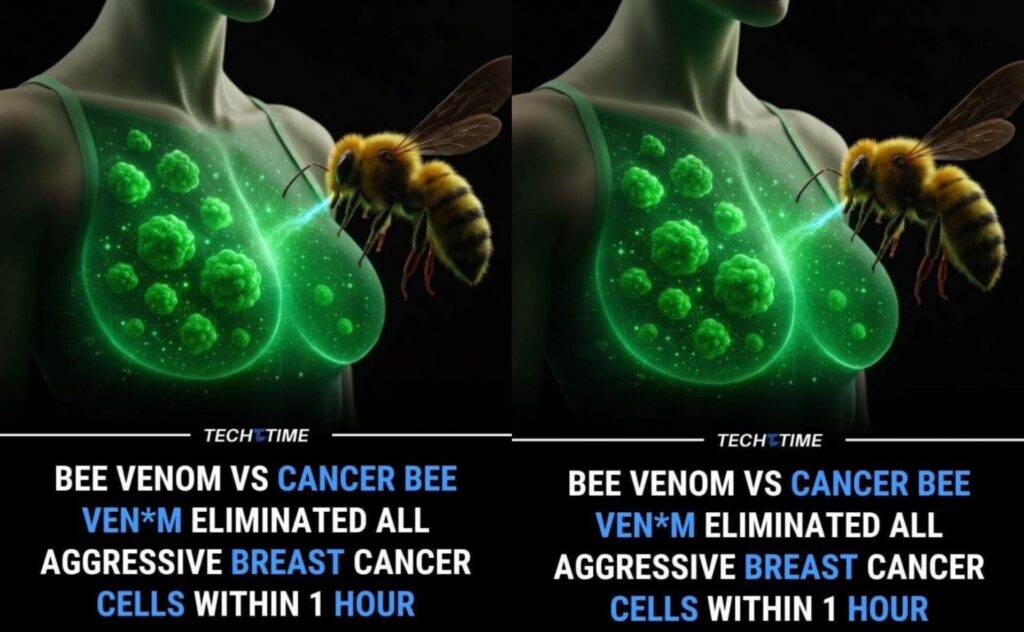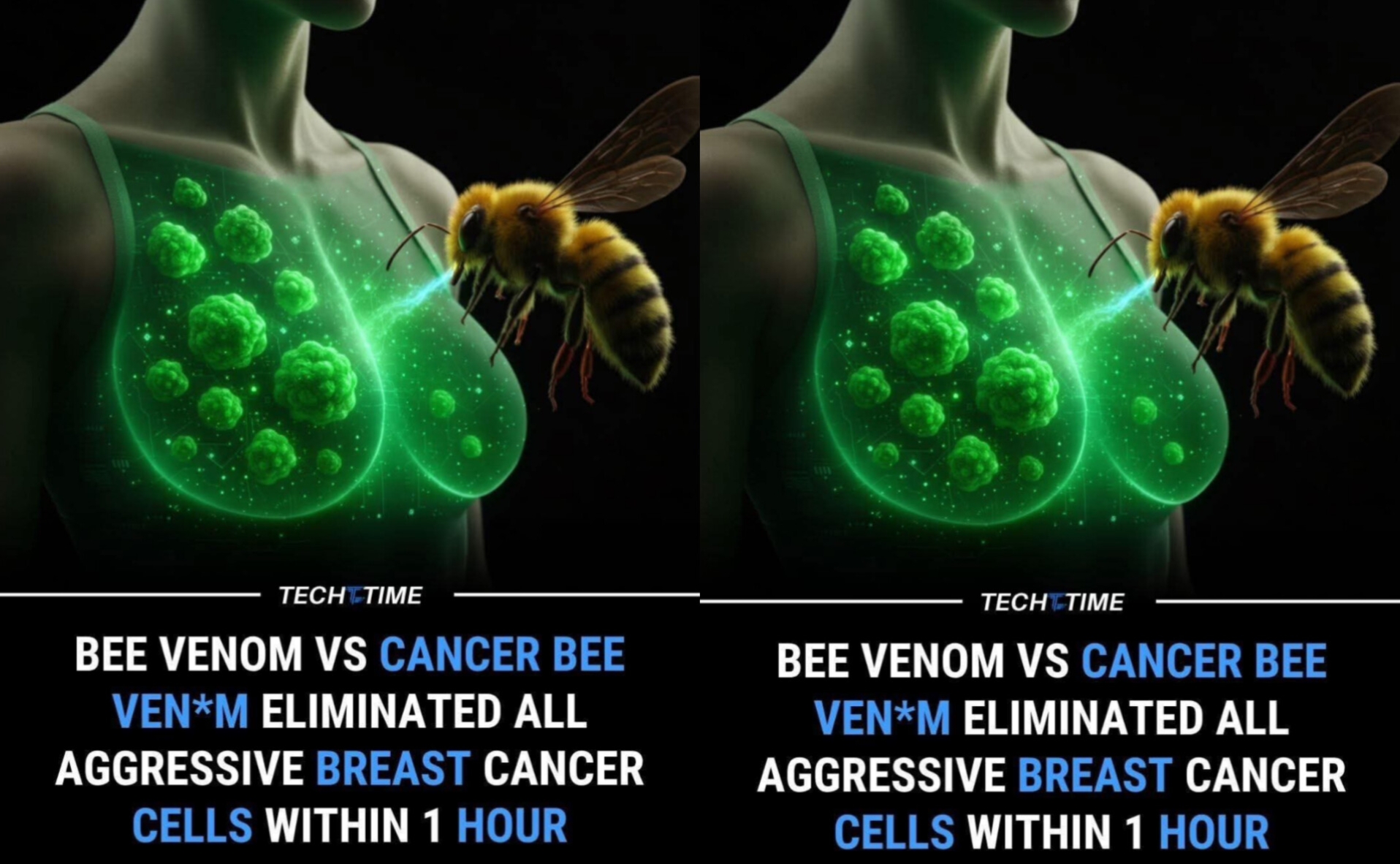In a groundbreaking medical discovery, scientists have found that bee venom can destroy 100 percent of aggressive bre@st cancer cells in less than an hour. The key lies in a compound called melittin, a powerful natural molecule found in bee venom that can pierce through cancer cell membranes while leaving healthy cells largely unharmed.
Researchers from the Harry Perkins Institute of Medical Research in Australia conducted experiments using venom from honeybees and bumblebees. They discovered that melittin acts like a precision weapon, attacking cancer cells that are resistant to current treatments, including triple-negative bre@st cancer — one of the most difficult forms to treat. Within just 60 minutes, the venom effectively stopped cancer cell growth and caused them to collapse.


The most astonishing part is how specific the venom’s action is. It doesn’t rely on traditional chemotherapy methods that harm healthy tissues. Instead, it targets molecular weaknesses unique to cancer cells, opening the door to safer and more natural therapies in the future. Scientists are now exploring how melittin can be combined with other treatments to enhance results and reduce side effects.
This discovery could reshape the future of cancer research. What was once seen as a painful sting might soon become a medical miracle. The humble honeybee may hold one of nature’s most potent weapons against one of humanity’s deadliest diseases.

